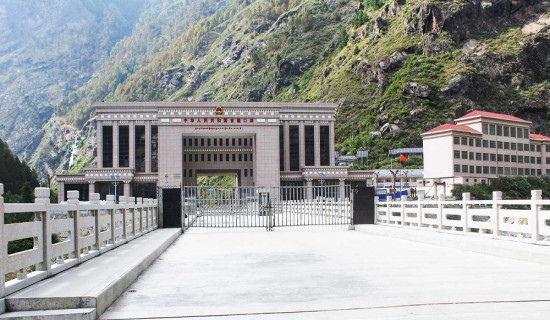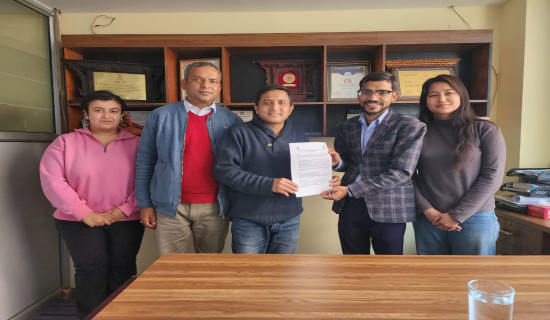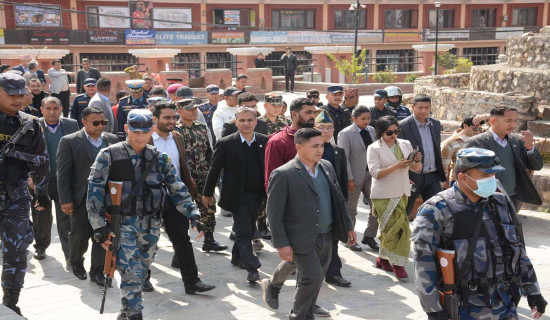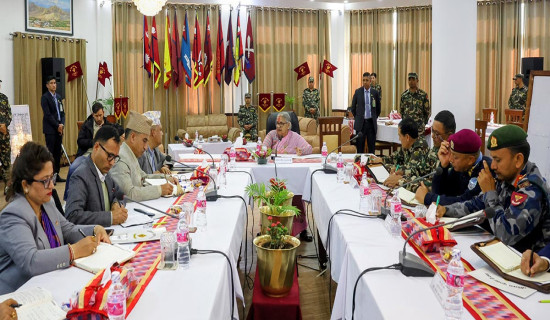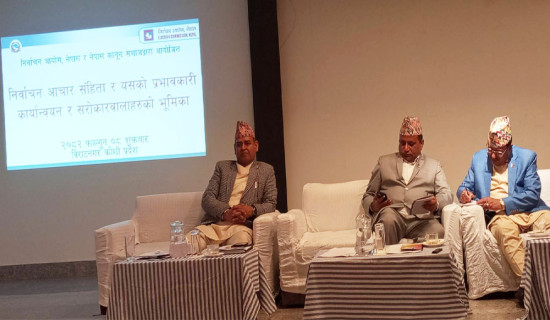- Saturday, 21 February 2026
Nepal's Caste Discrimination: A Plea for Humanness and Justice
Krishna Verma 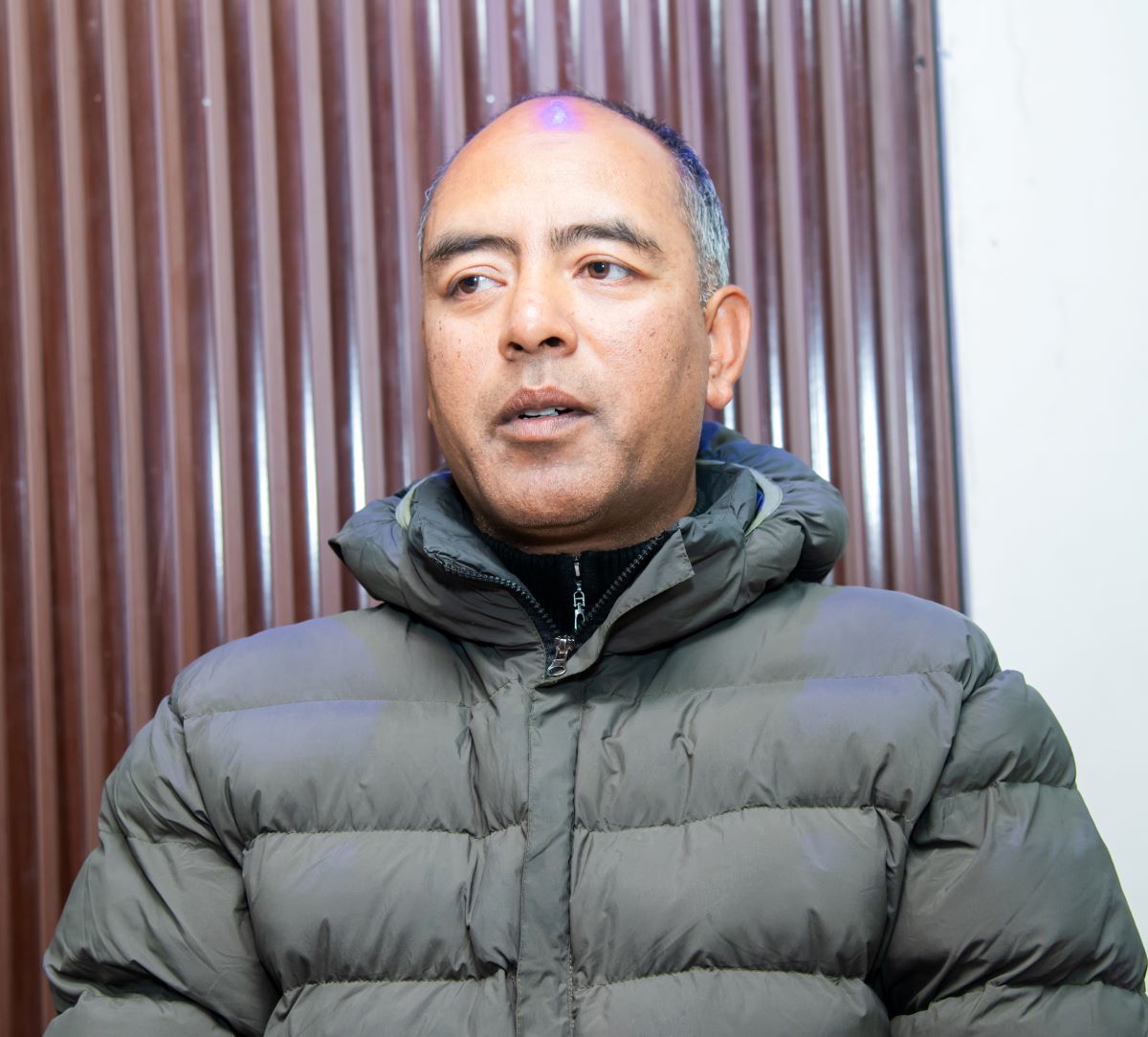
Discrimination happens in many layers yet the caste discrimination in Nepal stands out as particularly inhuman. A wide-reaching and oppressive shadow of caste discrimination remains present in Nepal's society beyond the stunning Himalayas. Despite new laws and developmental advances Nepal remains trapped by ancient biases that strip human dignity from entire groups especially the Dalits once known as "untouchables." A terrible incident occurred in Aaurahi Rural Municipality, Siraha district on March 21, 2025 which reignited public attention to this issue. By citing their "untouchability" and "unholiness," the local official expelled a Dalit family from their home to relocate them to the colony's riverbank area. The action demonstrated such complete disregard for human decency that it breached constitutional protections regarding equality and human rights in Nepal. This event represents a deep-rooted societal evil that persists within the country instead of being a single occurrence.
Nepal, a Third World nation with development aspirations, cannot allow such inhuman/cruel discrimination to have its way. To put an end to caste-based atrocities once and for all, now is the time for strong action, strict legal enforcement and national awakening.
A Harsh Reminder of the Siraha Incident
A local administrator relocated a Dalit family who had lived peacefully in their humble home because he felt their presence was an embarrassment to the society. This led to the Siraha incident. Due to their caste, the family had to stay on the riverside, which is an open area exposed to the elements and devoid of any dignity. The rationale was apparently based on archaic notions of "untouchability" and "impurity," having no role to play in a modern democratic state. A rare example of quick action has come in Madhesh Province's Siraha with the National Human Rights Commission (NHRC) launching an investigation and two people arrested on suspected caste discrimination. It helps to shed light on a more general truth, however: caste bias is still widespread and is frequently facilitated by those in power, even in the presence of legislative restraints on authority. Such misuse is not new in Siraha Madhesh Province.
The Dalits, making up around 13.8% of the population in Nepal, are open to violence and exclusion because the rural character of the region and the unavailability of educational resources enhance social stratification. Riverbank eviction is not only a violation against an individual family but also a defilement of the values of equality and human dignity that Nepal professes to believe in. It leaves us with the pressing question: Why do such crimes still happen in 2025? And how can the cycle of cruelty be broken? The Wider Background:
A History of Exclusion
The basis of Nepal's caste discrimination lies in the Hindu 1854 Muluki Ain codified Hindu caste system which relegated Dalits as the lowest level of social order.
While the caste system was abolished by law in 1963 and outlawed by the 2015 Constitution, its social effects are present even today. In every sphere of their lives from marriage and work to residence and education Dalits are discriminated against and excluded from public areas like sources of water and temples. The practice of regarding Dalits as "impure" in an effort not to have contact with the higher castes is a deeply dehumanizing form of discrimination. There have been a number of reports of Dalit pupils being lagged behind in schools and families being denied residency in Kathmandu apartments while people are subjected to violent abuse for choosing a spouse of different caste. High-profile instances revealing this age-old depravity have recently come to light.
The country was stunned in 2019, Ajit Mijar in Kavre district, in 2020 when Nabaraj BK and his companions were brutally killed in Rukum West for seeking an inter-caste marriage. Likewise, the rape and killing of 12-year-old Angira Pasi in Rupandehi brought the focus of the spotlight to the intersectionality of caste and gender-based violence. In addition to routine degradations like the Siraha eviction, these events disclose a culture of impunity in which legal safeguards are present in theory but are lacking in reality. Police also decline to register caste-based complaints, leaving the victims with no other option but to turn to informal mediation rather than the law, according to Amnesty International's 2024 report, "No One Cares." If nothing is done, the Siraha case, still under investigation, could continue in this manner. Legal Provisions: A Framework That Needs Enhancement
Nepal has made significant legal strides against discrimination based on caste.
Article 24 of the 2015 Constitution states that discrimination and untouchability are prohibited and they are considered to be serious social offenses. The economic, social, and political rights of Dalits are guaranteed under Article 40 as well. Such discriminatory acts are banned by the Caste-Based Discrimination and Untouchability (Offence and Punishment) Act of 2011 (amended in 2018), and the punishment can be from NPR 50,000 to NPR 200,000 along with up to three years' imprisonment. In 2020, the government set up Dalit desks at 86 police stations throughout the country to resolve grievances of this nature in the wake of public outcry over incidents like Nabaraj BK's. But if these steps are not implemented effectively, they are meaningless.
According to figures from Nepal Police, there are merely 30 to 40 reported cases of untouchability annually; a mere fraction of the real number of occurrences, as most of them go unreported because they are settled at the local level by compulsion, out of fear, or lack of trust in the government. The Office of the Attorney General says while the arrests in Siraha are a welcome improvement, the conviction rate remains appallingly low, around 55%, for those charges, and 80% for other crimes. Where previous investigations frequently broke down through lack of evidence or political pressure, the NHRC investigation of the displacement from the riverbank is reassuring. The National Dalit Commission, tasked with promoting Dalit rights, is weak and underfunded. Change Recommendations: A Multifaceted Strategy
Nepal must pursue a multi-faceted approach of strong law enforcement, social transformation, and empowering the Dalit people to end caste discrimination. The following feasible recommendations are adapted to meet the current crisis:
Strengthen Legal Enforcement
Mandatory Reporting and Police Negligence Sanctions: The 2011 Act must be amended to punish police personnel who refuse to settle cases informally or fail to report caste-related matters. As Amnesty noted in Madhesh Province, an agency with specialization must oversee the operation of Dalit desks so that they are more than a piece of paper.
Fast-Track Courts: In order to expedite justice and ease the victimization load of caste discrimination, which is a typical clog in rural areas like Siraha, such cases must be allotted special courts.
Enhanced Penalties: For the purpose of sending out a zero-tolerance signal, levy heavier fines and imprisonment sentences on public functionaries and habitual offenders. As required by law, compensation to the victim must be paid with utmost expediency.
Empower the Dalit Community
Legal Empowerment: Support programs that educate Dalit youth to practice law and paralegal services so they may interact with and negotiate the court system. A base of attorneys could be established through law school scholarships and quotas, such as in the Rukum example, where Dalit solicitors were instrumental.
Economic Empowerment/Upliftment: Engage rural Dalits and give positive action in employment and education. In reversing historical injustices, land reform would bring an end to forced evictions like the eviction from Siraha's riverside.
The National Dalit Commission should commission commissioners to guarantee that Dalit voices guide policy at every level of government.
Change the Attitudes of Society
Awareness Campaigns: Organize national campaigns to eliminate "untouchability" attitudes by using the media, schools, and religious figures. Expand such campaigns. UNDP-sponsored short films in 2023 have proved to be effective in evoking debate.
School Curriculum: Foster compassion and remove generation-based biases by adding caste equality as a part of education from the grass roots level.
Community Engagement: To reverse the segregation observed in Siraha, promote inter-caste relations by means of festivals, workshops, and rewards for inclusive behavior.
Address Intersectional Vulnerabilities
Protect Dalit Women and Girls: Develop specific protection programs, education, and legal aid based on their increased vulnerability, as noted by Amnesty International. The women and children of the family must be given priority after the Siraha tragedy.
Disaster Equity: Provide Dalits with equal disaster relief during a crisis, stopping centuries of caste discrimination in the face of floods and earthquakes.
What Next?
The eviction at Siraha is a wake-up call to Nepal to get its act together on the issue of caste. Former Prime Minister Pushpa Kamal Dahal Prachanda's vows regarding Dalit rights, given on March 21, 2025, during the International Day for the Elimination of Racial Discrimination, must materialize. The state, civil society, and citizens must unite to implement the law, empower the excluded, and reframe social norms. Nepal's development rests on being inclusive-no one left behind, not even on a riverbank. And Dalit community must unite for it's a shared agenda without dividing into different political parties. With its progressive Constitution, dedicated activist base, and international support from organizations like the UN, Nepal has everything required to triumph as a state. It simply lacks the vigor to make the most of them.
Let the Siraha family's pain be used as a tool for change and not merely a fleeting reference to a long history of injustice. Not tomorrow but today is the day to abolish caste discrimination. And the Dalit community is now approaching political parties and their leaders for their support and ending caste based such kind of inhuman discrimination. It's not the problems of the dalit community it's the problem of all human being, but society has not raised voice against such inhuman incidents. So, let's rise voice to be human being.
(Author Verma is from Pipaldhara, Dhurkot-2, Gulmi)









